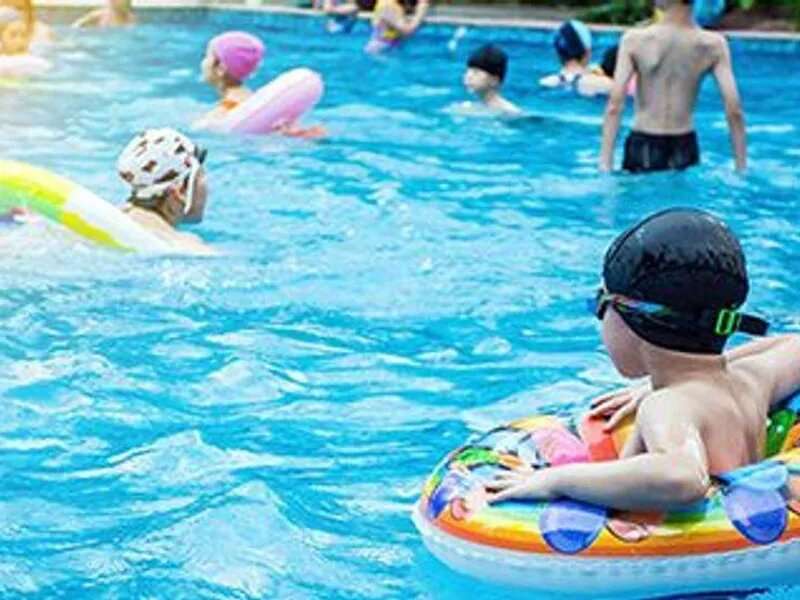One dirty pool, many cases of E. coli: Summer's swimming danger

As the weather warms and families flock to pools, dirty water may dampen the fun.
Swimmers at a Pennsylvania community pool learned that the hard way in June 2021, when more than a dozen kids were seriously sickened by two types of bacteria, E. coli and C. difficile.
"These are pathogens that can cause pretty significant gastrointestinal distress in all ages, but particularly in children," said researcher Molly Nace, an epidemiology research associate at the Pennsylvania Department of Health in Greensburg. "Some of the children who tested positive for E. coli also tested positive for C. difficile."
The kids got sick after swallowing the pool water, she said.
These bacteria usually find their way into pool water because someone swims while having diarrhea, Nace said. Bacteria can also get into the water from another source of contamination, and sometimes local water sources might have E. coli, she added.
In this outbreak, 15 children became ill. Thirteen of them needed medical care, and six were hospitalized for severe diarrhea and inflammation of the colon. Fortunately, none developed hemolytic uremic syndrome, which can cause kidney failure.
The report was published May 20 in the U.S. Centers for Disease Control and Prevention's Morbidity and Mortality Weekly Report.
Normally, chlorine kills E. coli and C. difficile. However, the automatic chlorinator in the pool was broken, which allowed the bacteria to thrive. According to records, at one point, no chlorine was detected in the pool, the researchers noted.
Nace said the best way to avoid getting harmful bacteria into pools is to avoid swimming if you have diarrhea. People should also wash their hands before and after swimming. That advice goes for backyard and public pools, she said.
Dr. Marc Siegel, a clinical professor of medicine at NYU Langone Medical Center in New York City, likens swimming pools to cesspools. "I mean, I'm not a fan of them," he said.
Siegel's advice to pool owners is to keep chlorine at recommended levels and regularly clean the pool filters.
"Frequently check the filters and make sure you have adequate filtration, and check the chlorine level," he said. "Also, people entering pools should shower first, which almost nobody does."
Nace and Siegel recommended that bathers follow the CDC's advice:
- Don't swim or let others swim if sick with diarrhea.
- Shower for at least 1 minute before you get into the water to remove dirt or anything else on your body.
- Don't swallow the water.
- Don't pee or poop in the water.
- Take kids on bathroom breaks and check diapers every hour.
- Change diapers away from the poolside to keep germs from getting in the water.
- Dry ears thoroughly with a towel after swimming.
The CDC also says that chlorine mixed with dirt, sweat, urine and feces creates chemicals that sting and redden swimmers' eyes. And when these contaminants are in pool water, it means there's less chlorine available to kill germs.
More information: For more on healthy swimming, see the U.S. Centers for Disease Control and Prevention.
2022 HealthDay. All rights reserved.





















